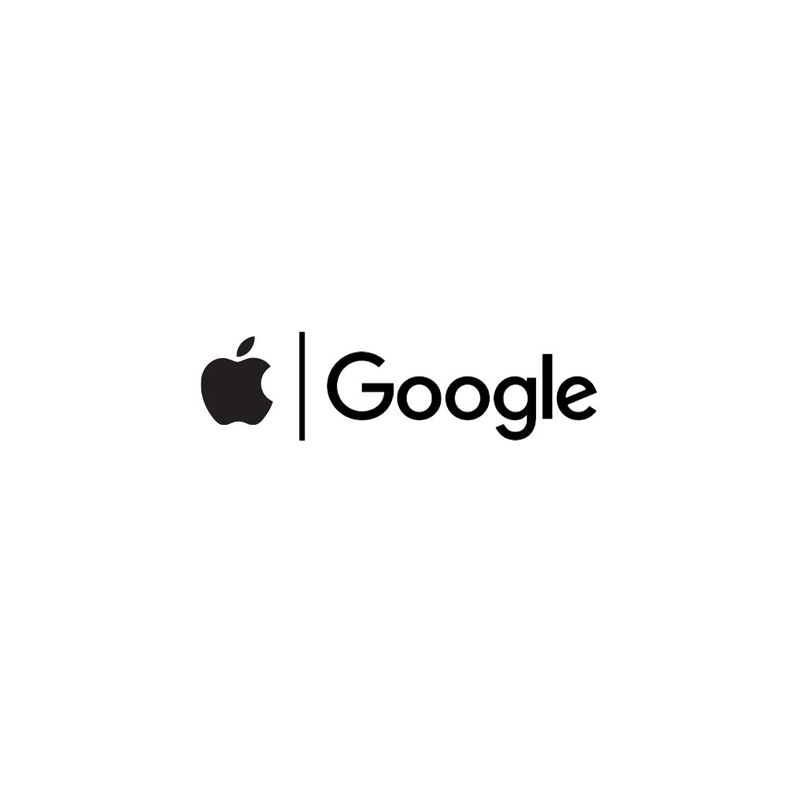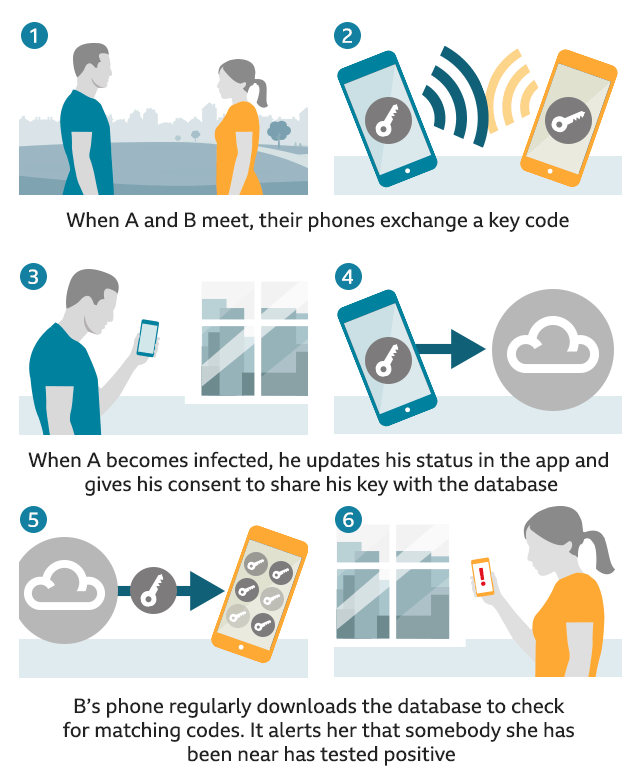
Apple and Google are companies conducting businesses in the tech field. They are rivals and fierce, but they can be friends when the world needs them.
The two companies have unveiled a rare partnership, which adds technology to their respective smartphone platforms, allowing users to be alerted if they have come into close contact with people infected with the novel 'COVID-19' coronavirus.
The technology is called simply as 'contact-tracing', and it is designed to curb the spread of the coronavirus by telling users they should quarantine or isolate themselves after they came into contact with an infected individual.
According to both Google and Apple on their announcement (1) (2):
Contact tracing can help slow the spread of COVID-19 and can be done without compromising user privacy. We’re working with @sundarpichai & @Google to help health officials harness Bluetooth technology in a way that also respects transparency & consent. https://t.co/94XlbmaGZV
— Tim Cook (@tim_cook) April 10, 2020
To do this, the two rivals said that they are building the technology into their iOS and Android operating system, in two steps.
The first step, is in May. The companies want to add the ability for iOS and Android users to wirelessly exchange anonymous information via apps run by public health authorities. The companies also want to release frameworks for public health apps to manage this functionality.
This way, if a user on either platform is tested positive for the COVID-19, health authorities can add the user data to the public health app. After that, if someone else has come into close proximity with the infected person over the previous several days, he/she will be notified.
The second step takes the course of several months.
Both companies want to add the technology directly into their operating systems, meaning that the contact-tracing software can work without requiring people to download an app or do anything.
Users must still opt in to use the technology, for privacy's sake.
To help public health officials slow the spread of #COVID19, Google & @Apple are working on a contact tracing approach designed with strong controls and protections for user privacy. @tim_cook and I are committed to working together on these efforts.https://t.co/T0j88YBcFu
— Sundar Pichai (@sundarpichai) April 10, 2020
According to the two companies, contract-tracing uses Bluetooth, which is already the standard way for mobile devices to communicate with each other.
This is similar to how 'TraceTogether', 'PeduliLindungi' or other similar apps work, but with a much larger reach.
When two people meet for whatever reason, their smartphones work in the background via Bluetooth to exchange anonymous identifiers to register that they have been in close proximity. These identifiers will change every 15 minutes or so, but will remain on these people’s devices to preserve privacy.
Several days later, if one of the two is diagnosed with COVID-19. The person enters the results into a health-agency app on their phone. The system then asks user’s consent, and if granted, the person’s smartphone will send a record of the other mobile devices that have been in close proximity during the previous days.
This information is temporarily stored in a remote computer server for about 14 days. Health authorities however, have the ability to change the time range if they want to.
Meanwhile, the other person can check his/her smartphone, to see whether there are any identifier that has been associated with a positive COVID-19 diagnosis. The person' smartphone will download all positive keys and matches it anonymously to the identifier belonging to the individual from the original meeting days earlier.
If there is a match, the software will send a notification. The system will also provide the person with information from health agencies about how to quarantine or self-isolate.

Together, Apple’s iOS and Google’s Android have about 3 billion users.
What this means, contact-tracing allows the two companies to potential to monitor about a third of the world’s population.
To put it into another perspective, if ever Apple and Google want to conduct surveillance to the users, this technology would be one of largest surveillance system there is. And as it involves billions of people sharing their sensitive health information, there is no saying what would happen if the data is leaked for whatever reason.
This the main reason why the technology is controversial.
Apple and Google stressed that their system preserves users’ privacy, saying that not only user consent is required, as location data is also not collected. The technology also won’t notify users who they came into contact with, or where that happened. The companies said they can’t see this data either, and noted that the whole system can be shut down when needed.
The pandemic has killed more than 100,000 people and infected more than a million. With governments forcing citizens to remain home to curb the virus' spread, they are also urged to correct the spiraling economy. Pressure is building to relax these measures and to get the world back to working order
This is why any suggestion or contribution is highly appreciated.
For Apple and Google, this kind of partnership is extremely rare.
The two companies have been longtime rivals, competing in various fields of technology, including: operating system, app stores, media services, AI and others. It's this coronavirus pandemic that show how the two are actually friends, even though they are enemies at heart.
“All of us at Apple and Google believe there has never been a more important moment to work together to solve one of the world’s most pressing problems,” the companies said in a joint statement.
Previously among others, Apple has launched a COVID-19 screening website and mobile app to give the necessary information to people about the contagious disease, and some guidance on when to seek testing or emergency care. As for Google, the search giant has launched it own COVID-19 website, launched a coronavirus news hub, giving away hundreds of millions of dollars in advertising credits, and published anonymized user location to curb the spread of the virus.